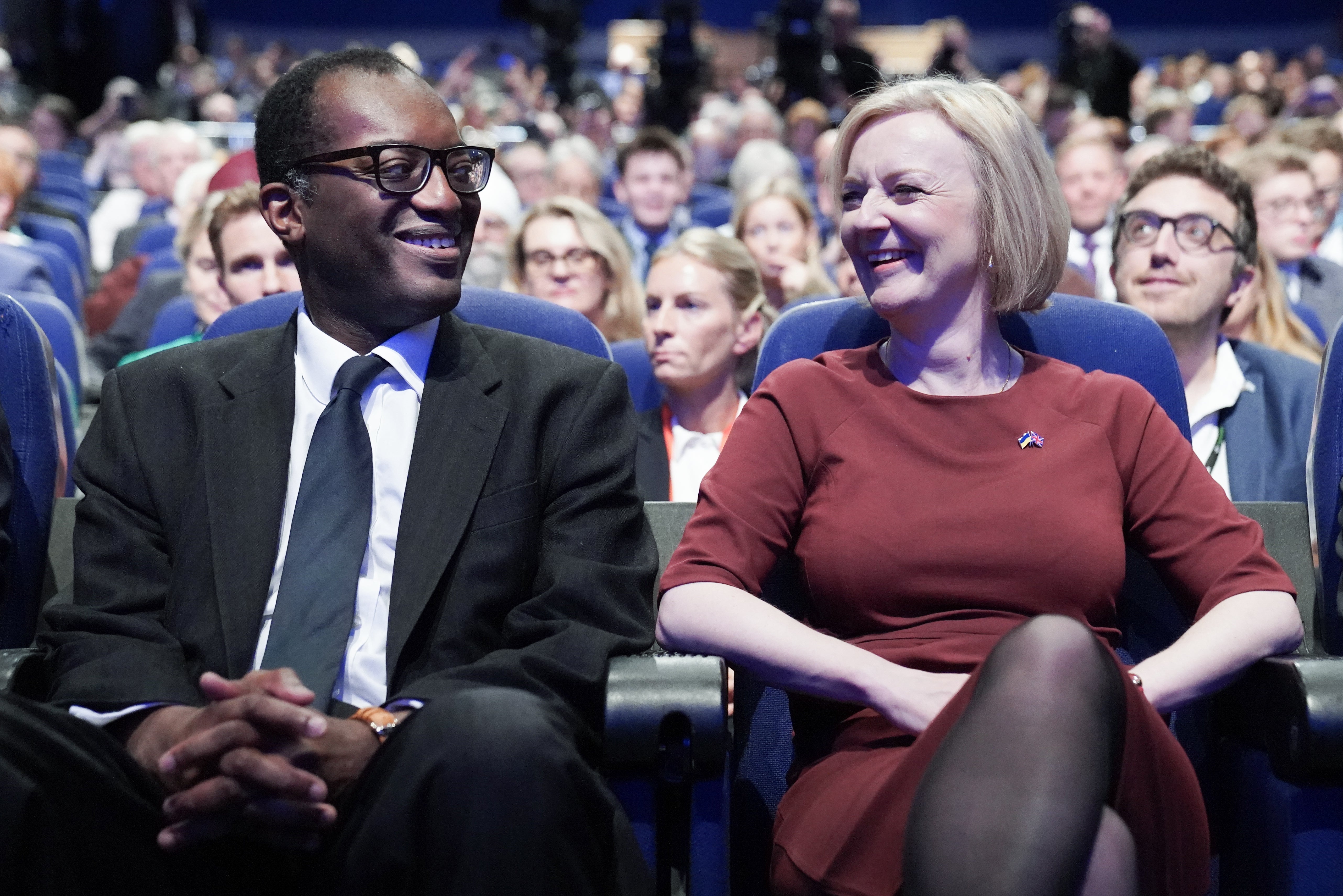What is 55 Tufton Street? The house that ‘crashed’ the UK economy
Westminister home of conservative think-tanks targeted by Led By Donkeys over failure of ‘Trussonomics’
The political activist group Led by Donkeys has gone viral with a new video in which three of its members scale a ladder to place a mock blue plaque on the exterior of 55 Tufton Street in Westminster, central London, a Georgian townhouse serving as home to a number of right-wing think-tanks popular with Liz Truss.
“The UK economy was crashed here,” the commemorative sign reads, giving the date as 23 September 2022, the day on which Ms Truss’s now-ex chancellor Kwasi Kwarteng delivered his disastrous, uncosted “mini-Budget”, which proposed reckless tax cuts and heavy borrowing at a time of high inflation.
Mr Kwarteng’s fiscal programme – undeniably radical but deeply misguided, as it turned out – is understood to have been developed with the prime minister, a friend and neighbour from the so-called “Greenwich set”, but only served to spook global financial markets, forcing Ms Truss into a series of embarrassing policy U-turns and the Bank of England to buy up huge amounts of government debt to prop up pension funds.
The chancellor was recalled from a meeting with the IMF in Washington, DC, on Friday in order to be sacked and replaced with former foreign secretary Jeremy Hunt, who has since moved quickly to abolish most of what remained of the mini-Budget to reassure investors.
In so doing, he also shredded what remained of Ms Truss’s credibility and left her a lame duck PM after just six weeks in the job, with her party facing total wipeout at the next general election.
Led By Donkeys blames the think-tanks of 55 Tufton Street for informing Ms Truss and Mr Kwarteng’s economic ideas, which the duo first espoused as long ago as 2011 with the founding of the Free Enterprise Group within the Conservative Party or 2012 when they were among the authors of the book Britannia Unchained – along with Dominic Raab and Chris Skidmore – whose prescriptions so comprehensively crumbled upon first contact with reality.
Ms Truss promoted her tax cutting ambitions throughout this summer’s prolonged Tory leadership contest, riding roughshod over rival Rishi Sunak’s objections to her “fairy tale” tax pledges, which have since been more than vindicated.
Led by Donkeys accompanied its latest stunt with a short film attacking Tufton Street lobbyists as “free market fundamentalists”, who are “hostile to regulations that protect the environment and workers’ rights”, reject corporate social responsibility and “believe the market is God”.
It argues that Ms Truss’s elevation to No 10 means the lobbyists’ “ideology became government policy”, given the close affinity between her and the institutions who make their home there or nearby, notably the TaxPayers’ Alliance, the Global Warming Policy Foundation, the Centre for Policy Studies, the Adam Smith Institute and the Institute of Economic Affairs (IEA).
“Basically, the more bland the name of a ‘Tufton Street’ outfit, the more evil it is,” comedian Stewart Lee recently noted in The Observer.

Led By Donkeys points out that Ms Truss has appointed a number of senior advisers, including Matthew Sinclair, Alex Wild, Caroline Elsom, Ruth Porter and Julian Jessop from Tufton Street organisations and has reportedly spoken at more IEA events than any other politician in the last 12 years, emphasising just how entwined its influence has become within the Tory hierarchy.
It also notes that a number of these groups had taken to social media to gloat over the inclusion of policies its members had endorsed in Mr Kwarteng’s mini-Budget before the markets reacted so adversely to them and have been somewhat more quiet on the subject since.
Jack Fenwick’s recent BBC Radio 4 documentary The Other Black Door also examined the role of Tufton Street, charting its growing influence within the right of the Conservative Party through the austerity era and then Brexit.
Labour deputy leader Angela Rayner appeared in the programme and commented: “55 Tufton Street shouldn’t have any more influence than any other street in the United Kingdom and what seems to be happening here is that street seems to dominate particular policy and what’s happening in government and legislation and it’s not transparent enough at the moment.
“It’s very clear to me that there is shady situations where there is clear money, power and influence going through that particular area... Nobody’s saying these people can’t exist but I think that it’s important the public know where these people are coming from and where their money and finances are coming from because that influences how legislation goes through Parliament and influences key decision-making that has a significant impact on the UK.”
Another contributor to the programme, conservative pundit Andrew Lilico, argued that the secrecy surrounding who precisely funds the inhabitants of the address is necessary because otherwise they too would find themselves targeted by activists fundamentally opposed to their activities, which would only result in harassment.
On Tuesday’s evidence, he may have a point there.
Join our commenting forum
Join thought-provoking conversations, follow other Independent readers and see their replies
Comments


Bookmark popover
Removed from bookmarks